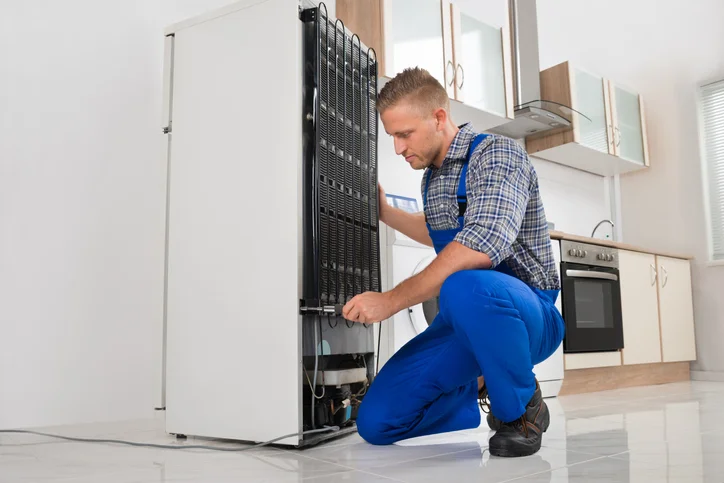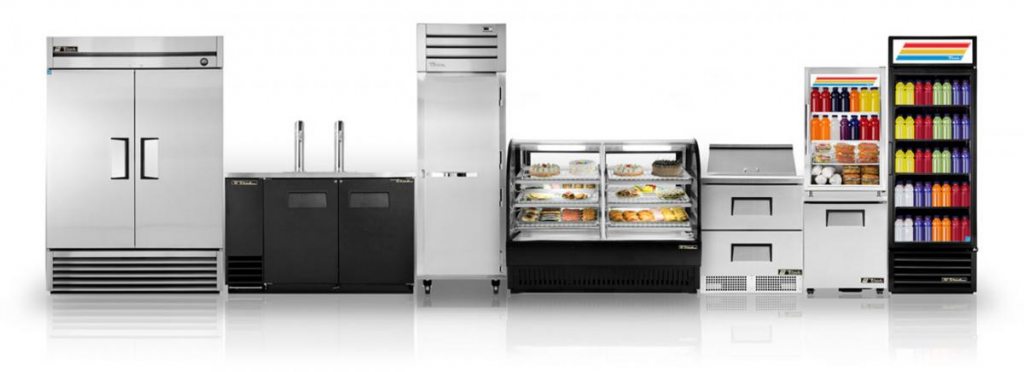Washing Machine Repair Dependable Refrigeration & Appliance Repair Service Shares How Timely Repairs Save You Money
Washing Machine Repair Dependable Refrigeration & Appliance Repair Service Shares How Timely Repairs Save You Money
Blog Article
Crucial Tips for Effective Ref Fixing to Extend Device Life-span
When it comes to your fridge, correct repair work and maintenance are vital for long life. Recognizing usual problems and understanding when to act can make all the difference.
Understanding Common Fridge Troubles
Fridges are important in maintaining your food fresh, but they can come across a variety of usual issues that interrupt their efficiency. One constant problem is poor cooling. If you observe food spoiling quicker than typical, check the thermostat settings or take into consideration if the door seals are harmed. One more typical trouble is excessive noise, which could suggest a malfunctioning compressor or a failing fan. You may additionally experience water merging inside or beneath the fridge; this usually results from a stopped up defrost drainpipe or a malfunctioning water line. In addition, if your fridge's light isn't functioning, maybe an easy light bulb problem or a trouble with the door switch. Finally, ice buildup in the freezer can impede air movement and cooling efficiency. Identifying these concerns early can save you money and time out of commission, guaranteeing your fridge runs efficiently and efficiently.
Normal Maintenance Practices
To maintain your home appliances running smoothly, you require to remain on top of regular maintenance practices. Tidy the condenser coils, examine the door seals, and keep track of the temperature setups to assure peak performance. These basic jobs can conserve you time and money on repairs down the line.
Tidy Condenser Coils Consistently
Cleansing your condenser coils regularly can considerably boost your device's efficiency. Dust and dirt build up on these coils over time, triggering your home appliance to function tougher and eat more energy. To keep them clean, unplug your appliance and very carefully get rid of any kind of safety covers.
Examine Door Seals
Three simple actions can aid you assure your appliance's door seals are in great condition. Second, tidy the seals using warm, soapy water to get rid of any debris or grime. By complying with these steps, you'll preserve your home appliance's performance and durability, conserving you cash on power expenses and fixings in the lengthy run.
Display Temperature Level Setups
Consistently checking your appliance's temperature settings is essential for best performance and efficiency. Whether you're taking care of a fridge, freezer, or stove, keeping an eye on these setups can avoid numerous concerns. For fridges, go for temperatures in between 35 ° F and 38 ° F; for fridges freezer, remain 0 ° F. If the temperature levels are too high or reduced, your home appliance may work harder, squandering energy and reducing its lifespan. Use a thermometer to examine these settings on a regular basis, particularly after significant changes, like moving your appliance or readjusting the thermostat. If you observe changes, change the setups as necessary and seek advice from the user guidebook for guidance. By staying positive about temperature surveillance, you'll ensure your home appliances run smoothly and last much longer.
Troubleshooting Air Conditioning Issues
When your refrigerator isn't cooling down correctly, it can cause spoiled food and wasted cash, so addressing the issue quickly is vital. Start by inspecting the temperature level settings to verify they go to the recommended levels, usually around 37 ° F for the fridge and 0 ° F for the fridge freezer. If the settings are right, examine the door seals for any gaps or damages; a malfunctioning seal can permit warm air to enter.
Next, examine the vents inside the refrigerator and freezer. Validate they're not obstructed by food items, as this can interfere with air movement. Pay attention for the compressor; if it's not running or making uncommon sounds, it might require attention. Ultimately, examine the condenser coils, generally located at the back or bottom of the device. Dust and particles can collect, creating cooling concerns. Clean them with a vacuum cleaner or brush to optimize performance. If issues continue, it may be time to call a specialist.
Repairing Water Leakage and Ice Build-Up
If you're handling water leakage or ice build-up in your home appliance, it's important to recognize the source of the issue. By identifying where the water is originating from, you can prevent more issues and avoid expensive repair services. Allow's explore some reliable strategies to deal with these usual issues.
Identify Leak Sources
How can you properly identify the resources of water leakage and ice accumulation in your appliances? Beginning by examining the seals and gaskets on your refrigerator and fridge freezer doors. A worn or broken seal can allow cozy air to go into, creating condensation and ice. Next off, inspect the drain pan and drainage system for obstructions or blockages; a backed-up drain can result in water pooling. Try to find any kind of loosened connections in the water supply line, which can develop leaks. Additionally, check out the defrost drainpipe for ice accumulation, which can disrupt proper drain. By methodically examining these areas, you'll determine the resource of the trouble, enabling you to take the essential actions to fix it and expand your home appliance's life-span.
Avoid Ice Development
To avoid ice formation in your appliances, begin by validating the temperature setups are suitable. If your refrigerator or freezer is too chilly, it can cause excessive ice build-up. Check the door seals consistently; damaged seals can let cozy air try this out in, causing condensation and ice formation.
Keep the appliance well-ventilated and stay clear of overcrowding, as this can block airflow - Refrigerator repair experts Dependable Refrigeration & Appliance Repair. Regularly thaw your freezer if it doesn't have an automated defrost attribute.
If you notice water leak, identify and take care of any kind of blocked drain openings, as they can add to ice buildup. Tidy the coils and confirm they're functioning correctly to keep peak performance. Taking these actions will assist prolong your device's life-span and effectiveness.
Addressing Noisy Refrigerator Sounds
While it might seem worrying, a loud fridge often signifies small issues rather than significant breakdowns. Common culprits consist of the compressor, followers, and water lines.
Next, check for loosened things inside. In some cases, containers or shelves can rattle, developing undesirable noise. Tighten or reorganize them to remove the sounds.
If you notice a clicking noise, it may be the defrost timer. This is usually harmless yet could show it needs assessment.
Finally, verify your fridge is level. An unbalanced appliance can generate resonances and sound. Utilize a degree to check, and change the feet if required. Attending to these problems quickly can sites help keep your refrigerator's efficiency and extend its life expectancy.
When to Replace Parts vs. Complete Substitute

Take into consideration the price of repairs versus the appliance's worth. Additionally, if you observe ongoing issues that maintain repeating, it's an indication that your home appliance has gotten to the end of its life.
Recognizing When to Call a Specialist
Exactly how can you inform when it's time to call in an expert for appliance repair work? If your device stops working completely or regularly journeys circuit breakers, it's another red flag.
You must additionally consider your very own comfort degree with fixings. If you're unclear regarding identifying the problem or do not have the right tools, it's best to connect for aid. Keep in mind, attempting complex repairs can cause even more damage or even security threats.

Regularly Asked Concerns
How Typically Should I Tidy the Refrigerator Coils?
You ought to cleanse your refrigerator coils every 6 months. This aids keep effectiveness and protects against overheating. If you discover too much dust or animal hair, tidy them extra frequently to assure your fridge runs efficiently.

Can I Make Use Of Vinegar for Cleansing My Fridge?
Yes, you can use vinegar to clean your fridge! It's a superb all-natural cleaner that eliminates smells and spots. Dependable Refrigeration & Appliance Repair Service LG Appliance Repair. Simply blend it with water, apply it to surface areas, and wipe down for a fresh, clean fridge
What Temperature Should My Fridge Be Ready To?
You must set your refrigerator to 37 ° F(3 ° C) for perfect food preservation. This temperature keeps your food fresh while preventing wasting, guaranteeing your grocery stores last longer and lowering waste. It's an easy adjustment you can make!
Does a Refrigerator Need to Be Leveled?
Yes, your fridge needs to be leveled. If it's irregular, it can impact cooling performance and create excess noise. Examine the leveling legs and change them to ensure proper balance for perfect performance.
How Can I Lower Fridge Power Intake?
To minimize your refrigerator's energy intake, keep it tidy and well-ventilated, check door seals for leaks, established the temperature between 35-38 ° F, and stay clear of overwhelming it. These steps can substantially reduce your energy costs.
Report this page